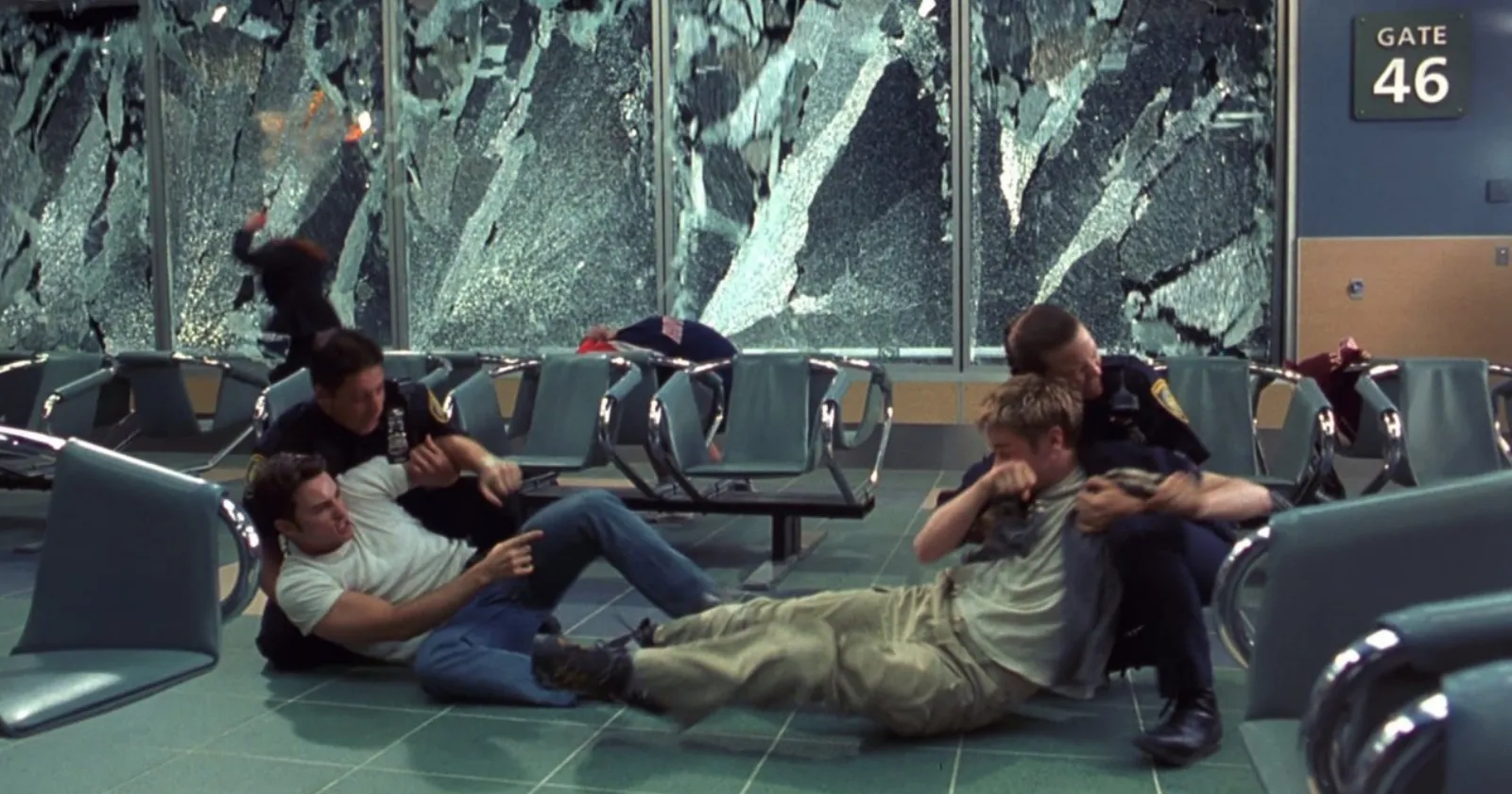Final Destination (2000) may not be a masterpiece, but its originality, high-concept premise, and the effectiveness of its suspenseful set pieces earn it a solid place in horror history.

‘Final Destination’ Movie Review
Final Destination, directed by James Wong and written by Wong and Glen Morgan, is a horror film with a concept so enduring it’s become part of pop culture shorthand. The idea—that death itself has a design and you can’t truly escape it—has fueled an entire franchise, but the original remains a fascinatingly restrained starting point for a series that would later become known for its wild, Rube Goldberg-style death sequences.
In Final Destination, we follow high schooler Alex Browning (played by Devon Sawa), who, while boarding Flight 180 to Paris with his classmates, experiences a vivid premonition of the plane exploding mid-air. His panic causes a scene, and he and several others are removed from the flight. Moments later, his vision proves horrifyingly accurate—the plane crashes, killing everyone who remained onboard. Alex and his fellow survivors—Clear Rivers (Ali Larter), Carter Horton (Kerr Smith), and others—find themselves grappling with the unthinkable: they’ve somehow cheated death.
But as the survivors begin dying in bizarre and gruesome ways, it becomes clear that they weren’t meant to live. Death, as explained by the ominous mortician William Bludworth (Tony Todd), has a plan, and it’s coming back for each of them. What follows is a slow-burn thriller filled with mounting dread, as seemingly innocuous details—a leaky pipe, a loose wire, a train crossing—become harbingers of elaborate doom.
What makes Final Destination stand out, even two decades later, is how rooted it is in the mundane. The horror isn’t masked monsters or supernatural jump scares—it’s the idea that everyday life is booby-trapped, and death is lurking in the details. That quiet dread sticks with you, and while later entries in the Final Destination series ramp up the absurdity and gore, there’s something admirably restrained about the original’s more grounded (but still shocking) approach.
The film leans heavily on atmosphere and tension rather than gore alone. Its best moments are not just the kills themselves, but the slow, meticulous buildup to them. The audience is trained to scan every frame for potential hazards, and that anxiety is part of the appeal. The deaths are memorable—not just for their execution, but for how they make you rethink things as ordinary as a shower, a bus stop, or a kitchen counter.
Still, Final Destination isn’t flawless. The characters are fairly thin, and the dialogue veers into cliché more often than not. The pacing, particularly in the middle stretch, drags as the movie attempts to piece together its mythology. And once the structure becomes clear—death strikes in the original seating order—the film becomes a bit too predictable, even as it tries to subvert expectations with how each death unfolds.
READ MORE MOVIE REVIEWS: Mission: Impossible II, Barking Dogs Never Bite, Fight Club
Yet despite its imperfections, Final Destination holds up as a defining horror film of its era. Like Saw or Scream, it carved out a specific niche and spoke to a generational fear: the lack of control over our own mortality. It’s a film that makes you second-guess your surroundings and think twice about your morning routine. And for all its cheesy teen-drama elements, that core idea is what gives the movie its staying power.
Score: 6/10
Final Destination (2000)
- Cast: Devon Sawa, Ali Larter, Kerr Smith, Kristen Cloke, Seann William Scott, Chad Donella, Amanda Detmer, Tony Todd
- Director: James Wong
- Genre: Horror
- Runtime: 98 minutes
- Rated: R
- Release Date: March 17, 2000
- Movies Like Final Destination: Thanksgiving, Ring, In a Violent Nature, More Movies Like Final Destination